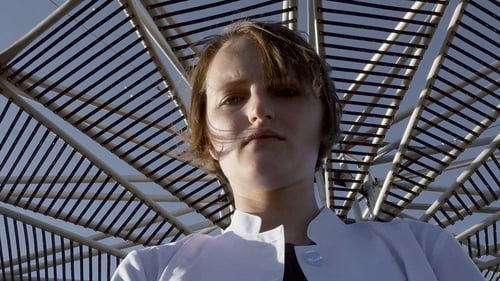
Editor
Living in Beirut, a city where memory is obliterated by a post- war reconstruction process, I am constantly haunted by the fear of loss, the loss of traces of the loved ones and the places of personal and collective memory. Starting with images of my deceased husband, I embark in a journey into memory, filming my mother and my places of childhood, recollecting my father’s memory and filming Beirut’s historical strata and the city’s alienating present. Interweaving intimate and public spaces and times, past and present, I wonder if by preserving traces through cinema I could find consolation to loss.

Director of Photography
Living in Beirut, a city where memory is obliterated by a post- war reconstruction process, I am constantly haunted by the fear of loss, the loss of traces of the loved ones and the places of personal and collective memory. Starting with images of my deceased husband, I embark in a journey into memory, filming my mother and my places of childhood, recollecting my father’s memory and filming Beirut’s historical strata and the city’s alienating present. Interweaving intimate and public spaces and times, past and present, I wonder if by preserving traces through cinema I could find consolation to loss.

Cinematography
The last film in Vidokle's trilogy on Cosmism is a meditation on the museum as the site of resurrection-a central idea for many Cosmist thinkers, scientists and avant-garde artists. Filmed at the State Tretyakov Gallery, the Moscow Zoological Museum, The Lenin Library, and the Museum of Revolution, the film looks at museological and archival techniques of collection, restoration and conservation as a means of the material restoration of life, following an essay penned by Nikolai Federov on this subject in the 1880s. The film follows a cast comprised of present-day followers of Federov, several actors, artists and a Pharaoh Hound that playfully enact a resurrection of a mummy, a close examination of Malevich's Black Square, Rodchenko's spatial constructions, taxidermied animals, artifacts of the Russian Revolution, skeletons, and mannequins in tableau vivant-like scenes, in order to create a contemporary visualization of the poetry implicit in Federov's writings.

Director
In the cosmopolitan Turkish city of Izmir, thousands of Syrians fleeing Assad, ISIS, and the proxy forces lined up behind them, bide their time, waiting to cross the Aegean Sea. On the soundtrack, voices from a previous war.

Director of Photography
The second installment of Anton Vidokle’s trilogy on Russian cosmism, The Communist Revolution Was Caused By The Sun, looks at the poetic dimension of the solar cosmology of Soviet biophysicist Alexander Chizhevsky. Shot in Kazakhstan, where Chizhevsky was imprisoned and later exiled, the film introduces Сhizhevsky’s research into the impact of solar emissions on human sociology, psychology, politics, and economics in the form of wars, revolutions, epidemics, and other upheavals. It aligns the life of post-Soviet rural residents and the futurological projects of Russian cosmism to emphasize that the goal of the early Soviet breakthroughs aimed at the conquest of outer space was not so much technical acceleration, but the common cause of humankind in their struggle against the limitations of earthly life.




